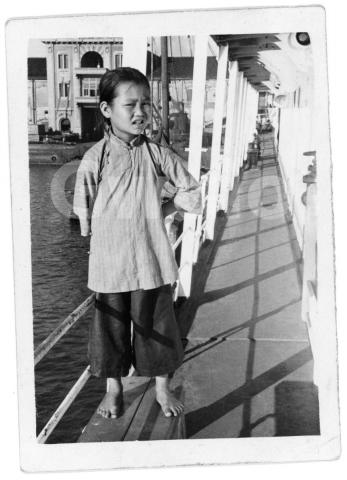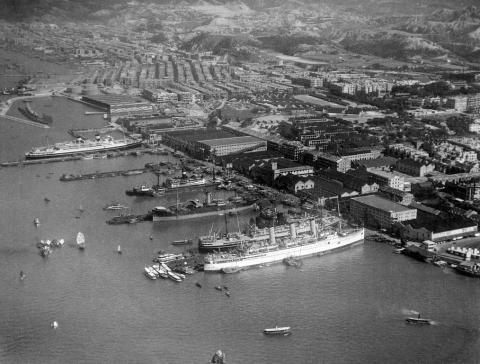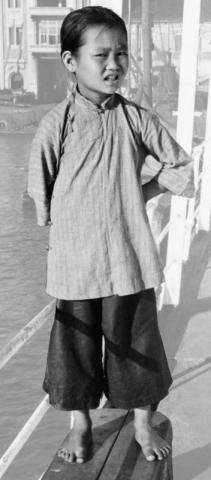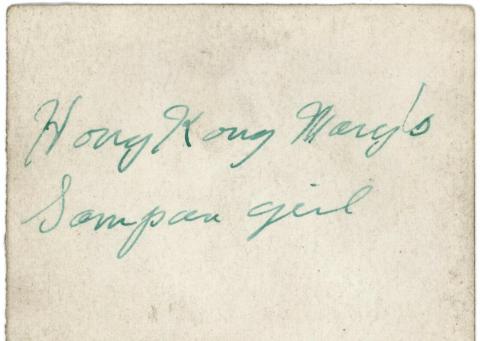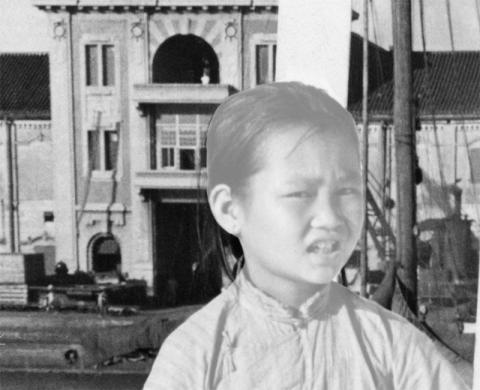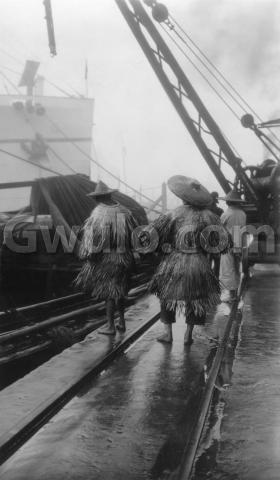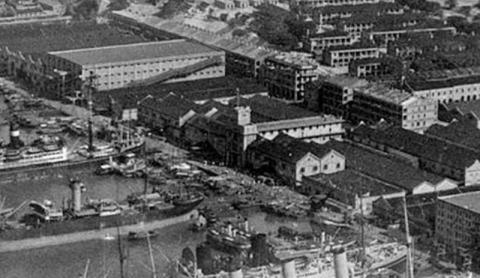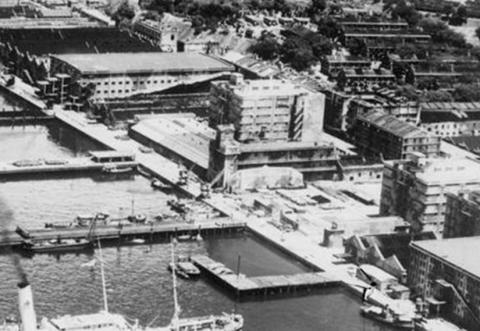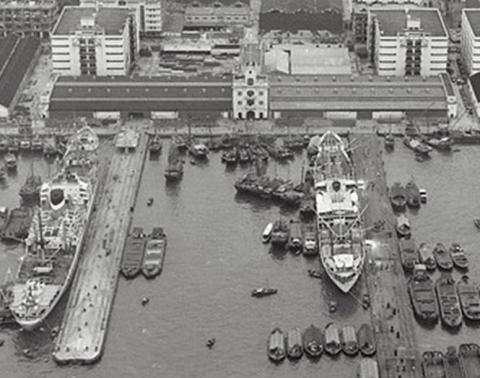"Hong Kong Mary's Sampan Girl"
Primary tabs
Where: The distinctive building at top left shows we're looking at the Kowloon Wharves, site of today's Ocean Centre and Harbour City. It also places the ship alongside the No. 2 Pier.
Here's an aerial view of the area from 1935, showing the piers along the eastern shore of Tsim Sha Tsui. The tower seen in the main photo is just to the right of centre in this scene.
At that time the wharves had five long piers. No. 1, nearest the camera, was the southern pier, standing where Ocean terminal is today. No. 5 was the northern one, where the Hong Kong China Ferry Terminal is today. If you look at a modern map there are only four piers, but the gap between the southern two is much wider than the rest. No. 2 Pier was roughly in the middle of that gap.
What: There isn't much to see of the ship the young girl is on, but can any readers identify what type of vessel it would have been?
Who: What can we find out about the star of the photo?
Here's the note on the back of the photo.
"Hong Kong Mary's Sampan Girl"
When I bought this photo earlier in the year, I still had the stories from Volume 3 fresh in my mind, including the side-parties that painted the ships visiting Hong Kong. I wrote that "Two get mentioned most often: the American sailors remember Mary Soo's side-party, while sailors on ships of the British Commonwealth's navy's remember Jenny's."
Mary Soo is believed to have started her business before WW2, with some of the women in her side-parties originally coming to her as orphans. Was Mary Soo the "Hong Kong Mary" referred to above, and this girl one of the orphans?
Another possibility is Mary Wong, also known as "Hong Kong Mary" by sailors visiting Hong Kong. Though by the 1940s she was already over 70 years old and more commonly known as "Hong Kong Old Mary", so I think Mary Soo is the more likely match.
The girl in the photo is standing on a wooden box to look taller, but was still a youngster. If she survived the war she'd be in her eighties today, so it would be wonderful if she could tell us the story of this scene in her own words. Do any readers recognise this young lady?
When: The eBay seller advertised this as from the 1940s, but let's see if we can do better than that. The clues I can spot are all in the photo's background.
To the right of the girl's head there's a steam crane. I'm not sure when they went out of use, but it suggests the main photo was taken earlier rather than later. Here's a steam crane at the Kowloon Wharves in a photo from 1927.
Next look at the buildings, and in particular look for any signs of wartime damage.
Hong Kong's main value to the Japanese during WW2 was as a harbour their shipping convoys could use as they transported raw materials from their occupied territories in southeast Asia back to Japan. When American bombers attacked Hong Kong, they were often aiming at Japanese ships in the harbour, or the infrastructure that supported them. The Kowloon Wharves were definitely a target, so were these buildings affected?
In the crop above, the building behind the steam crane is a two-storey structure, with a tiled roof in the Chinese style. We can see it to the right of the tower in the 1935 view we saw earlier.
This photo taken in 1945 shows that although tower survived the war intact, the two-storey building was destroyed in one of the bombing raids
A replacement was soon in place, as shown in this 1948 photo. It looks very different from the pre-war building though.
These changes tell us that the main photo was taken pre-war, dating it to 1940-41.
Further reading:
- Photos of the Kowloon Wharves over the years
- The American Bombing of Japanese-Occupied Hong Kong, 1942-1945
- Side parties and Mary Woo
- Mary Wong
- There are lots more photos and stories like these in Gwulo's books: Old Hong Kong Photos and The Tales They Tell, Volumes 1, 2, & 3.
Gwulo photo ID: A611
